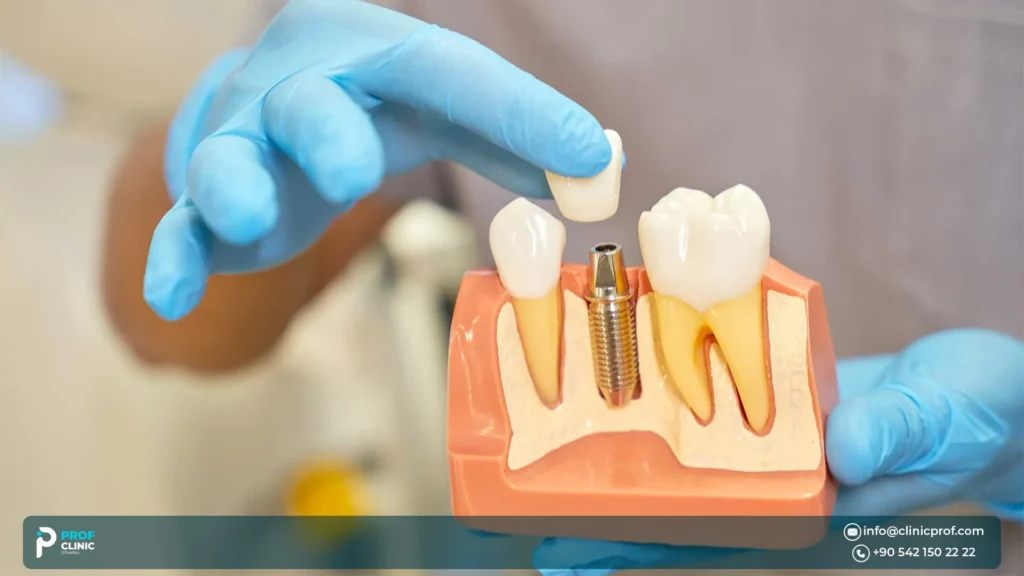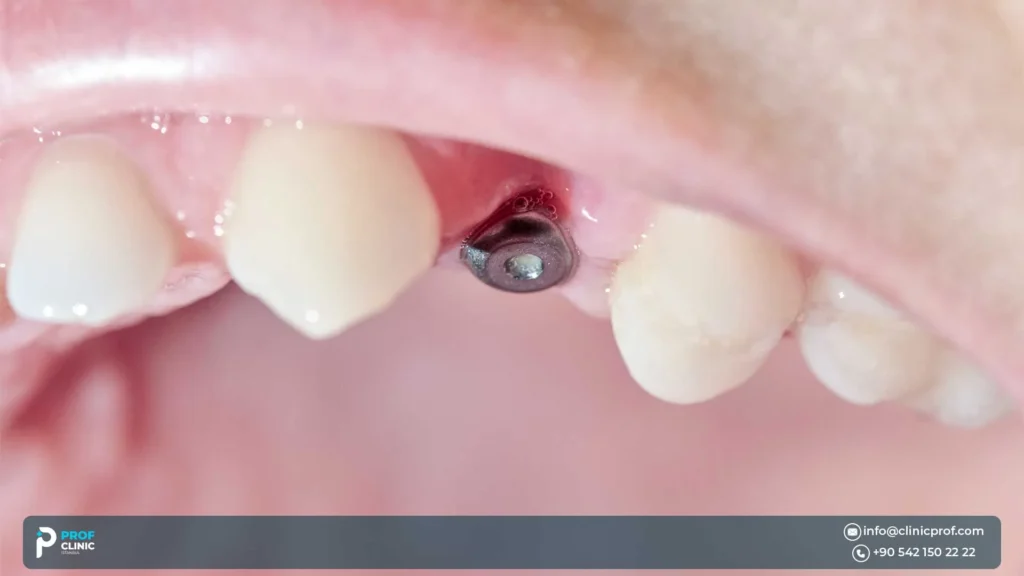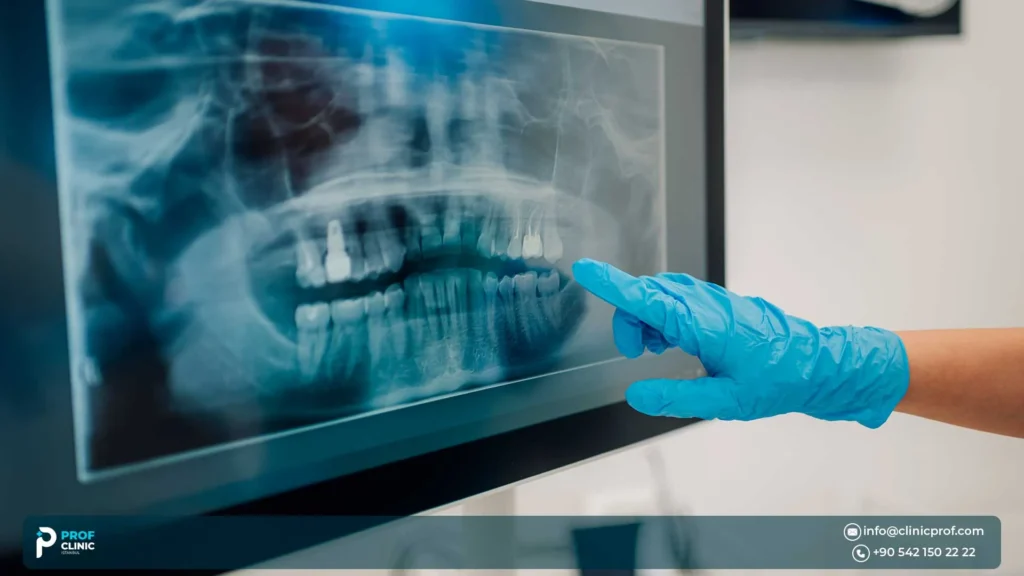When planning a smile transformation, patients often ask, How long do veneers last? Veneers are a favored cosmetic option for crafting an ideal smile, but knowing their durability is crucial before committing.
In this guide, we’ll answer the question, How long do veneers last? by examining the true lifespan of veneers, the factors influencing their longevity, and why Prof Clinic in Turkey stands out as the premier destination for durable, top-quality veneers.
What Are Veneers?
Veneers are slender, tailor-made shells applied to the front of teeth to enhance their appearance. They address various cosmetic issues, such as discoloration, chips, gaps, and slight misalignments. Typically crafted from porcelain or composite resin, each material offers distinct advantages in durability, aesthetics, and cost.
At Prof Clinic in Turkey, our skilled cosmetic dentists leverage cutting-edge technology and high-quality materials to create veneers that look and feel authentic, delivering the confident smile patients have always desired.
Also read: Veneers in Turkey Price (Guide 2025)
Veneers Types and Lifespan
Porcelain Veneers
Porcelain veneers, including Emax veneers, are the most durable and visually appealing choice. With diligent care, they can last 10 to 15 years, and often beyond. They resist stains, offer robust strength, and closely replicate the look of natural enamel.
Composite Veneers
Composite veneers, crafted from resin and applied directly to the tooth, are a more budget-friendly option, typically lasting 5 to 7 years. They are more susceptible to staining and chipping compared to porcelain veneers.
At Prof Clinic, we provide both options, but for patients seeking enduring results, we highly recommend porcelain veneers.
Also read: 8 Most Common Types Of Veneers in Istanbul

Factors That Affect Veneers’ Longevity
While the material is a significant factor, various lifestyle and dental care habits also impact the longevity of veneers.
Here are the primary factors affecting their lifespan:
- Oral Hygiene: Brush and floss consistently to maintain veneer condition.
- Dental Habits: Avoid biting nails, chewing ice, or using teeth as tools to preserve veneer durability.
- Teeth Grinding (Bruxism): Use a night guard to prevent early damage from grinding.
- Professional Dental Care: Schedule regular cleanings and checkups to detect potential veneer issues early.
- Diet: Limit consumption of staining foods or beverages like coffee, tea, and red wine to prevent dulling of veneers.
At Prof Clinic in Turkey, we evaluate each patient’s oral health and habits to recommend the most appropriate veneer type and care plan, ensuring optimal longevity.
Also read: Types of Dental Veneers and the Best Options with Prices
Signs That Your Veneers Need Replacement
Even the finest veneers have a limited lifespan. Here are common indicators that your veneers may need replacement:
- Loosening or detachment from the tooth
- Visible chips or cracks on the veneer surface
- Alterations in bite or the sensation of your veneers
- Discoloration or darkening around the veneer edges
- Sensitivity or discomfort, suggesting potential underlying tooth problems
If you observe any of these signs, promptly book an appointment. At Prof Clinic, we provide complimentary consultations and state-of-the-art diagnostics to assess whether replacement is necessary.
How to Extend the Lifespan of Veneers?
To maximize the value of your investment, adhere to these tips to extend the lifespan of your veneers:
- Brush twice daily with non-abrasive toothpaste
- Floss every day to prevent plaque accumulation around veneer edges
- Avoid hard or sticky foods that might crack or dislodge veneers
- Wear a mouthguard if you grind your teeth during sleep
- Schedule regular dental visits for cleanings and examinations
At Prof Clinic in Turkey, our team offers comprehensive aftercare guidance and ongoing support to ensure your veneers stay stunning and functional for years.
Also read: How Long Do Dental Implants Take in Turkey?
Cost vs. Longevity: Are Veneers Worth It?
Yes, veneers are undoubtedly worthwhile, given their blend of aesthetic enhancement and lasting durability.
Although porcelain veneers carry a higher initial cost than composite, their extended lifespan (often exceeding a decade) reduces the need for replacements, offering superior value over time.
At Prof Clinic, we provide cost-effective veneer packages customized to your needs and budget. International patients choose us not only for our expertise but also for our exceptional prices and outstanding results. For instance, Emax veneers are priced at just €215 per tooth—significantly lower than costs in the UK or US.
Also read: Veneers in Turkey Price (Guide 2025)

Prof Clinic is the best veneer clinic in Turkey
If you’re committed to enhancing your smile, Prof Clinic in Turkey is the ultimate destination.
Here’s why patients worldwide choose us:
- Skilled cosmetic dentists with extensive global experience
- Multilingual staff, ensuring a seamless, worry-free experience
- Modern, state-of-the-art clinic located in vibrant Istanbul, Turkey
- Cost-effective veneer pricing with comprehensive treatment packages
- Cutting-edge digital smile design technology to visualize your outcome
We blend top-tier care with tailored treatment plans to deliver veneers that are both breathtaking and enduring.
In short, if you’re wondering, How long do veneers last? — The answer hinges on the material, your oral hygiene, and the expertise of the provider. At Prof Clinic in Turkey, we craft veneers designed for longevity, supported by exceptional care and competitive pricing.
Ready for a Lasting Smile? Schedule your complimentary online consultation with Prof Clinic today and begin your journey to a dazzling, durable smile.
FAQs about How Long Do Veneers Last
Who should not get veneers?
Individuals with poor oral hygiene, untreated gum disease, or extensive tooth decay may not be suitable candidates. A thorough dental assessment at Prof Clinic in Turkey will confirm your eligibility.
What are the disadvantages of veneers?
Veneers provide remarkable cosmetic enhancements, but they are irreversible and may need replacement over time. Some patients might experience temporary sensitivity following placement.
Can you bite into an apple with veneers?
Yes, particularly with porcelain veneers. Still, it’s wise to exercise caution and avoid biting directly into very hard foods to prevent potential chipping
What happens to the teeth under veneers?
Teeth beneath veneers remain healthy with proper care. A thin layer of enamel is removed during application, but this does not compromise the tooth’s core integrity.
Can you go back to your normal teeth after veneers?
Veneers involve a permanent procedure. Once enamel is removed, teeth require ongoing coverage with veneers or crowns for protection.
How many hours does veneers take?
Each session typically takes 2–4 hours, depending on the number of teeth treated. Most smile makeovers are completed in 2 visits over 3–5 days, including preparation, digital design, and final bonding.
Do you get all your teeth pulled for veneers?
No. Veneers are applied to natural teeth—you do not remove teeth. Only a thin layer of enamel is shaved off to fit the veneer. If teeth are missing or severely damaged, other treatments like implants or crowns may be considered.
Is it a good idea to get veneers in Turkey?
Yes—if you choose a reputable clinic, like Prof Clinic. Turkey offers high-quality veneers at a fraction of UK/US prices, with internationally trained dentists, advanced tech, and full treatment packages. Always verify credentials, reviews, and before–after results to ensure safety and satisfaction.




